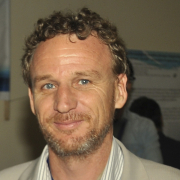In Africa, as elsewhere in the world, population growth in the coming decades will put significant pressure on the availability of food and on already scarce agricultural resources. The challenges of limited arable land, climate change and water scarcity have profound implications for food production. What we eat and how we produce it must be reconsidered. In particular, traditional feed ingredients, cereals, oilseeds and fishmeal need to be further rationalised and expanded through the development of alternative ingredients.
The production of insects from putrescible organic residual materials (fruits and vegetables, grains and meals, meat and fish, etc.) to meet the needs of farm animals is an alternative that is convincing more and more agri-food, producer, government and public stakeholders. Not only would it allow to manage food waste, avoid landfill and reduce greenhouse gas emissions, but also to supercycle (i.e., enhance the value) of many organic residual materials into high quality proteins and lipids that can be used in agricultural production. We propose to characterise local organic waste deposits (quantities over time and nutritional profiles) in order to assess the biological/logistical feasibility of producing fly larvae in Senegal.
To this end, work will first be carried out to quantify this waste; a monthly survey will be carried out at fruit and vegetable markets in Dakar in order to quantify vegetable waste. At the same time, samples of will be collected periodically to determine the proximal composition of this plant organic matter. This activity will make it possible to highlight the quality of this resource for the feeding of black soldier fly larvae. With this collected organic matter, pilot bio-processing tests will be set up in order to validate and show the feasibility of rearing fly larvae with such a substrate.
The objective of this project is to produce eco-responsible "livestock" ingredients via the bioconversion of organic waste with insect larvae. We are characterising the deposits of putrescible organic plant waste in order to assess the feasibility of producing fly larvae for fish and chicken feed in Senegal. The first step will be to quantify this waste. In a second phase, the proximal composition profile of this waste will be evaluated in order to establish its digestibility by black soldier fly larvae. A pilot bioprocessing test will be set up in order to validate and demonstrate the feasibility of the bioprocess. An activity to popularise the Quebec experience in this field will be carried out with research and development structures, in order to raise awareness of the alternative offered by the bioconversion of waste by insects.
Photo credit: La voie agricole, Quebec, Canada


 AWA
Scroll to top
AWA
Scroll to top